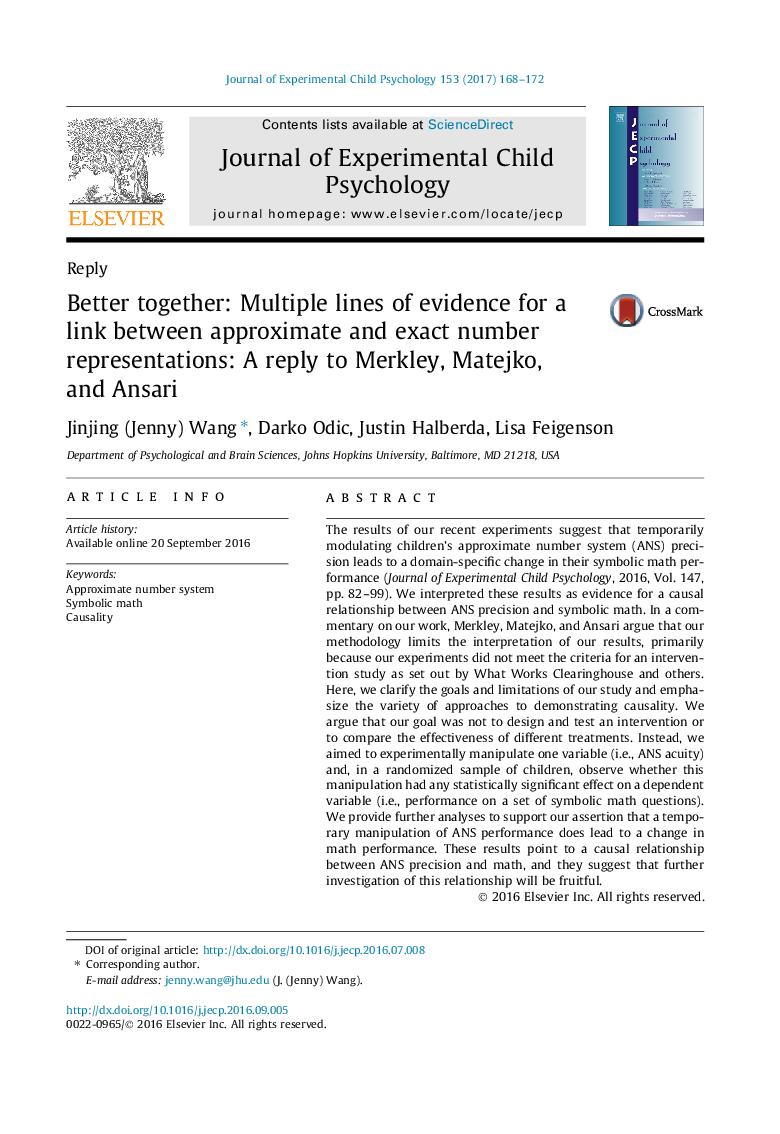| Article ID | Journal | Published Year | Pages | File Type |
|---|---|---|---|---|
| 5040011 | Journal of Experimental Child Psychology | 2017 | 5 Pages |
â¢We reply to the critiques by Merkley et al.â¢We clarify the goals and limitations of our study (Wang, Odic, Halberda, & Feigenson, 2016).â¢We argue that our results point to a causal relationship between ANS and math.â¢Further approaches from diverse directions will lead to fruitful results in this field.
The results of our recent experiments suggest that temporarily modulating children's approximate number system (ANS) precision leads to a domain-specific change in their symbolic math performance (Journal of Experimental Child Psychology, 2016, Vol. 147, pp. 82-99). We interpreted these results as evidence for a causal relationship between ANS precision and symbolic math. In a commentary on our work, Merkley, Matejko, and Ansari argue that our methodology limits the interpretation of our results, primarily because our experiments did not meet the criteria for an intervention study as set out by What Works Clearinghouse and others. Here, we clarify the goals and limitations of our study and emphasize the variety of approaches to demonstrating causality. We argue that our goal was not to design and test an intervention or to compare the effectiveness of different treatments. Instead, we aimed to experimentally manipulate one variable (i.e., ANS acuity) and, in a randomized sample of children, observe whether this manipulation had any statistically significant effect on a dependent variable (i.e., performance on a set of symbolic math questions). We provide further analyses to support our assertion that a temporary manipulation of ANS performance does lead to a change in math performance. These results point to a causal relationship between ANS precision and math, and they suggest that further investigation of this relationship will be fruitful.
